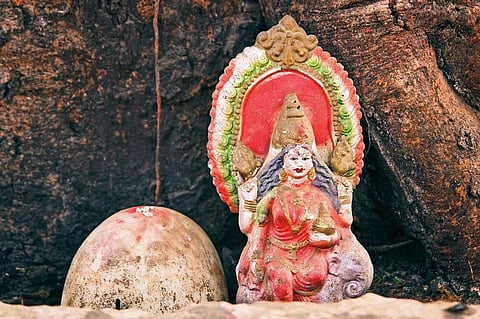About 11.3 million Hindus left Bangladesh due to religious persecution and discrimination from 1964 to 2013, he said. Therefore, it means on an average 632 Hindus left the country each day and 230,612 annually, mentioned Dhaka Tribune.
Dr Barkat, from his 30-year-long research, has found that the exodus mostly took place after independence, during military governments.
NewsGram brings to you latest new stories in India.
[bctt tweet="About 11.3 million Hindus left Bangladesh due to religious persecution and discrimination from 1964 to 2013." username=""]
The daily rate of migration was 705 before the Liberation War, while it was 512 during 1971-1981 and 438 during 1981-1991. The number increased to 767 persons each day during 1991-2001 while around 774 persons left the country during 2001-2012, mentions the book.
Delhi University teacher Prof Ajoy Roy said during the Pakistan regime, the government grabbed the properties of the Hindus describing them as enemy property and after independence, the same properties were taken by the government as vested property. Due to these two measures, 60 percent of the Hindus became landless, mentioned the book.
Go to NewsGram and check out news related to political current issues
The government has to ensure that the indigenous people would not be affected or harmed, said Dhaka University teacher Prof Farid Uddin Ahmed to Dhaka Tribune. "The government must ensure that the people do not think about leaving the country for once."
No accurate estimation of indigenous people
Discussing on another book of Prof Barkat "Political Economy of Unpeopling of Indigenous People: The case of Bangladesh," former NHRC chairman Prof Mizanur Rahman said that there was no precise estimation of the indigenous peoples living in the country and at least 22 indigenous groups had disappeared from the country.
Apart from this, Prof Mizanur also urged Jyotirindra Bodhipriya Larma alias Santu Larma to inform the indigenous peoples of the Chittagong Hill Tracts about the 1997 Peace Accord, mentioned Dhaka Tribune.
Look for latest news from India in NewsGram.
He added that the current attitude of the ruling party is not likely to solve the disputes through different reform programs, rather they want to affect the process in a negative manner. "We need a people-oriented government. But the reality of state mechanism does not allow this to happen."
Santu Larma, who is chairman of the CHT Regional Council has claimed that about 50 indigenous groups were on the verge of extinction but what they wish is to live with dignity with the remaining indigenous groups.
Prof Mizanur told Dhaka Tribune that although the Prime Minister Narendra Modi had taken stance in favour of the indigenous peoples, the ruling party leaders were involved in heinous activities against them.
– prepared by NewsGram


